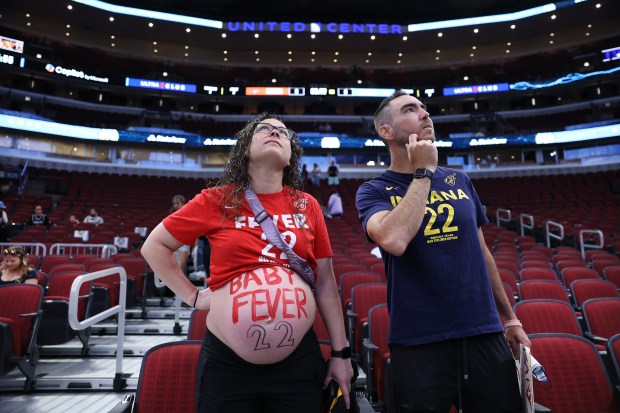Walgreens Boots Alliance has agreed to pay $300 million to settle allegations that it filled millions of invalid prescriptions for opioids and other controlled substances and illegally billed federal programs such as Medicare for those medications, the U.S. Department of Justice announced Monday.
The federal government had alleged that Deerfield-based Walgreens filled prescriptions with “egregious red flags,” according to an amended complaint filed last week in U.S. District Court for the Northern District of Illinois. The government alleged that Walgreens filled prescriptions with high dosages of opioids, filled prescriptions for the drugs too early, and filled prescriptions for a dangerous combination of three drugs, from late 2013 to early 2023, according to the complaint.
The government had alleged that Walgreens pressured its pharmacists to fill the prescriptions quickly, without giving them time to check if the prescriptions were valid.
The government also alleged that Walgreens submitted the invalid prescriptions to federal health insurance programs, including Medicare for reimbursement, in violation of the federal False Claims Act.
“Walgreens knowingly filled numerous invalid controlled-substances prescriptions that were either not issued in the usual course of professional practice, not for a legitimate medical purpose, or both,” the government had alleged, according to the settlement agreement. “Walgreens knew that such prescriptions raised significant concerns and were highly likely to be invalid. But Walgreens nevertheless filled numerous such prescriptions without resolving the significant concerns those prescriptions raised.”
Walgreens has denied the allegations. The settlement agreement does not include any admission of wrongdoing or liability by Walgreens.
“The Company entered into the Settlement Agreement to resolve the last anticipated major opioid regulatory matter and to avoid the cost and uncertainty of continued litigation,” Walgreens said in a filing with the Securities and Exchange Commission on Friday.
U.S. Attorney General Pamela Bondi said in a news release, “Pharmacies have a legal responsibility to prescribe controlled substances in a safe and professional manner, not dispense dangerous drugs just for profit.”
As part of the settlement, Walgreens will also have to pay interest on the money, and it will have to pay an additional $50 million if the company is sold or merges with another company before fiscal year 2032. Walgreens announced last month that it had agreed to be sold to a private equity firm in a deal expected to close in the fourth quarter of the year. That sale announcement followed years of financial struggles for the retail pharmacy giant, which has been grappling with changing consumer habits, challenges related to medication reimbursement and a ill fated foray into primary care.
As part of the settlement agreement, Walgreens must also maintain policies and procedures requiring pharmacists to make sure controlled substances are valid before filling prescriptions for them, among other requirements.
The allegations against Walgreens were originally brought by whistleblowers who were former Walgreens employees, with the first of the whistleblowers filing a lawsuit in 2018. The U.S. Department of Justice intervened in the consolidated cases in August.
The federal False Claims Act allows whistleblowers to sue on behalf of the U.S. government and receive a share of any money recovered. The four whistleblowers will receive 17.25% of the settlement money, according to the Department of Justice.
The settlement announcement comes less than two months after Walgreens said it had agreed to pay a separate, $595 million settlement to a virtual care company over a dispute involving COVID-19 testing.




